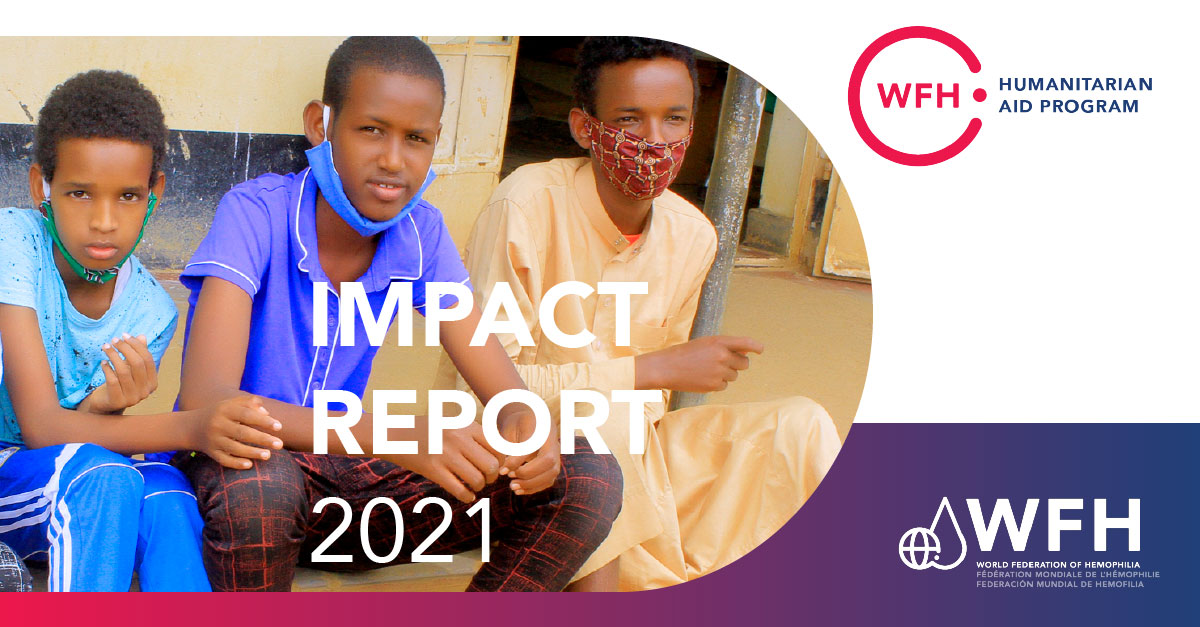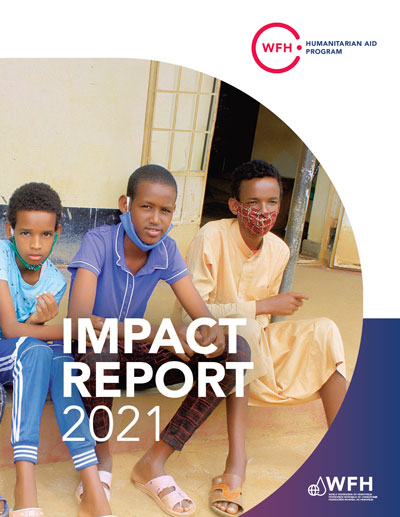The WFH Humanitarian Aid Program provides predictable and sustainable treatment for those who need it most, promotes diagnosis, and incentivizes governments to invest in bleeding disorders care. The WFH is happy to release Impact Report 2021, which shows the major impact these endeavours have had around the world. Read it now here.
The Program makes a difference by supporting WFH national member organizations (NMOs), hemophilia treatment centres (HTCs), and healthcare practitioners (HCPs) in emerging countries. In many ways, 2021 was a record year for the Program. We hit a major milestone: we have now donated over 1 billion IUs of factor since the expansion of the Program in 2015. We also treated 22,000+ patients with hemophilia A and B and put 2,011 patients on prophylactic treatment—1,186 through factor replacement therapy and 825 through non-factor replacement therapy. The statistics go on: 51,400+ bleeding episodes managed. 838 surgeries performed. 112 countries supported since the inception of the Program in 1996.
The Program continued to support our goals of increasing the number of people diagnosed and treated by working with national member organizations (NMOs) to hold outreach and identification campaigns. Significant progress is also being made advocating with governments to show them the impact investing in hemophilia care can have on the lives of people with a condition in their countries. All of this was achieved despite the challenges of the COVID-19 pandemic. These accomplishments make one fact clear: the WFH is making a difference in the lives of people with inherited bleeding disorders worldwide.
In 2022, we plan to do even more. Our goals for next year include securing more donations from donors and providing donations for people with von Willebrand disease (VWD) and other rare bleeding disorders. The WFH Humanitarian Aid Program gives people with the bleeding disorders hope—the hope of leading a normal life. Our success is a direct result of a collective effort between the WFH, pharmaceutical partners, governments, and the global bleeding disorders community.
To read the impact report, click here. To find out more about the WFH Humanitarian Aid Program, click here.
About the WFH Humanitarian Aid Program
The WFH Humanitarian Aid Program improves the lack of access to care and treatment by providing much-needed support for people with inherited bleeding disorders in developing countries. By providing patients with a more predictable and sustainable flow of humanitarian aid donations, the WFH Humanitarian Aid Program makes it possible for patients to receive consistent and reliable access to treatment and care. None of this would be possible without the generous support of Sanofi Genzyme and Sobi, our Founding Visionary Contributors; Bayer and Roche, our Visionary Contributors; Grifols, our Leadership Contributor; and our Contributors, CSL Behring and Takeda. To learn more about the WFH Humanitarian Aid Program, visit www.treatmentforall.org.














